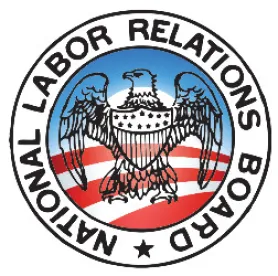In its recent Cemex Construction decision, the National Labor Relations Board (NLRB) abandoned two fundamental rules enshrined in Supreme Court case law. Both of those Supreme Court decisions prioritized secret ballot elections to determine if employees desired union representation or not and if employers had a duty to bargain with unions.
- In Linden Lumber v. NLRB, 419 U.S. 301 (1974), the Supreme Court held that unions may be validly refused voluntary recognition based on authorization cards or other evidence purporting to show majority status and that unions alone have the burden of invoking the NLRB’s election procedure. No more: now, employers must invoke the NLRB’s election procedure or else employees will not be able to vote in a secret ballot election on whether they want a union or not.
- In NLRB v. Gissel Packing, 395 U.S. 575 (1969), the Supreme Court held that election results may be overridden with a bargaining order instead of a new election only in “exceptional” cases where the possibility of ensuring a rerun election with traditional remedies is slight. No more: now, bargaining orders will be issued to overturn election results (or preclude an election entirely) based on virtually any violation.
The net result is that rules to protect employee choice are being replaced with rules to facilitate unionization without letting the affected employees make that choice in a secret ballot election. This is a radical shift in priority in the administration of the National Labor Relations Act by the current members of the NLRB requiring employers to immediately reassess risk profiles, action plans and employee relations strategies.
ANALYSIS
NLRB Election Petitions
Pre-Cemex, unions seeking to represent employees had to:
- Request and receive voluntary recognition from the employer or
- File an election petition with the NLRB and obtain a majority employee vote in the NLRB-conducted secret ballot election.
Post-Cemex, employers receiving a demand for recognition from a union must promptly file an NLRB election petition or forfeit their employees’ right to a secret ballot election. For employers who fail to do so, the consequences are significant because the NLRB will certify the union based on employee signatures on union authorization cards without an election and order the employer to bargain for a contract. The only defenses for an employer are difficult: proving that the cards are inauthentic or proving that the union’s proposed bargaining unit is fatally flawed.
NLRB Bargaining Orders
Pre-Cemex, the remedy for all but the most outrageous and unfair labor practices has been to order traditional remedies (cease and desist orders, reinstatement of union supporters who were disciplined, notice posting to all employees, etc.) and then hold a new election. Bargaining orders were the exception, not the rule.
Post-Cemex, the exception is now the rule. The NLRB will set aside an election “based on [any] violation…unless the violations…are so minimal or isolated that it is virtually impossible to conclude that the misconduct could have affected the election results.” The employer’s burden of proving what is “virtually impossible” is indeed daunting.
WHAT’S NEXT
While many employers will challenge these NLRB attempts to undermine secret ballot elections as the primary basis for determining union representation, such challenges in the federal appellate courts will take time. Meanwhile, employers must operate under the new rules for the foreseeable future.
And, worse, employers will face retroactive liability because the NLRB announced in its holding that it will apply the Cemex rules retroactively. This has already come to pass: one national grocery store chain received an unfair labor practice charge the very next day which asks the NLRB to (i) set aside an election a union lost in April 2023 and (ii) issue a mandatary bargaining order.
What’s next is troubling for employers. Plus, this danger is amplified by other changes being made by the NLRB, which not only has concurrently issued regulations to speed up election procedures but also issued decisions to expand the scope of what constitutes an unfair labor practice (and thus a basis for a bargaining order).
Employers should consider the following action items to protect their workforces and employee rights:
- Assemble and empower a working group team to evaluate and respond to rapid demands for recognition, including evaluating a demand for recognition, whether the bargaining unit is valid, and whether to pursue a secret ballot election for employees to decide whether they want a union or not.
- Focus on strengthening employee relations in order to hear and respond to employee concerns in real-time. Strong employee relations can further open communication and improve workplace morale.
- Focus on education in advance. This would include providing information about what union authorization cards are and what it means to sign one (including the potential loss of any right to a secret ballot election). Inform employees about their rights and potential tactics third parties may use to target or use them for their own agenda and gains.
- Focus on being prepared. Employers should have an action plan tailored to the unique needs of their workplace including education for managers and supervisors regarding their legal obligations and their rights to truthfully communicate concerning the pros and cons of union representation.






 />i
/>i

